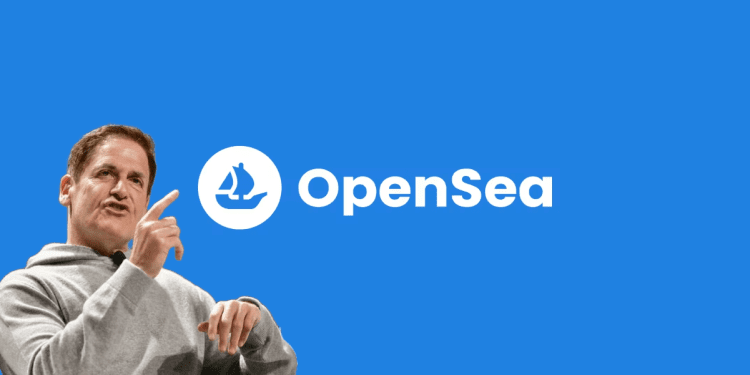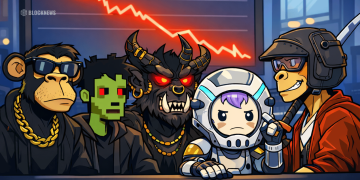- OpenSea, a leading NFT platform, has announced a shift to optional creator fees, sparking significant industry backlash.
- Billionaire Mark Cuban and major player Yuga Labs are among the most vocal critics, stressing the decision diminishes trust and could hurt the entire NFT sector.
- The move, seen as a response to competitive pressures, raises concerns about the future of creator royalties and the foundational principles of the NFT space.
The NFT world has been abuzz with reactions, debates, and potential boycotts following a significant policy shift by OpenSea, a leading NFT trading platform. OpenSea’s recent announcement that it intends to sunset the enforcement of creator royalties has not only sparked heated debates within the community but also garnered strong criticism from major industry players.
OpenSea, once an unchallenged giant in the NFT marketplace, has been facing stiff competition from emerging platforms, pushing it to continuously evolve its policies. The most recent and controversial of these changes, as announced on August 17, 2023, is the platform’s decision to transition to optional creator fees. Beginning August 31, artists who list new projects on OpenSea will no longer be able to mandate a creator fee, typically ranging from 2.5% to 10%, on secondary sales of NFTs. While creator fees will still exist, their enforcement is left to the discretion of the buyer, effectively treating them more as a tip than an obligation.
This change doesn’t just impact the financial dynamics for artists, but also the foundational ethos of the NFT space. One of the core promises of NFTs was the empowerment of creators, allowing them to earn royalties from secondary sales of their work. This policy change, in essence, disrupts that promise.
Mark Cuban and Industry Heavyweights Weigh In
Among the most vocal critics of this policy shift is billionaire entrepreneur, Mark Cuban. Known for his candid opinions and significant influence in the crypto and NFT space, Cuban’s words resonate powerfully. Expressing his disappointment on a social platform referred to as “X”, Cuban stressed, “Not collecting and paying royalties on NFT sales is a HUGE mistake by OpenSea. It diminished trust in the platform and hurts the industry.” His critique is especially poignant given that he himself is an investor in OpenSea, having participated in the platform’s $23 million Series A funding round in 2021.
But the backlash doesn’t end with Cuban. Yuga Labs, the creator of the famed Bored Ape Yacht Club, has also voiced strong opposition. In a direct response to OpenSea’s decision, Yuga Labs announced plans to sunset its compatibility with OpenSea by February 2024. This is no small threat, considering sales of Yuga-owned collections account for billions in NFT trades.
Other creators and NFT enthusiasts have joined the chorus of criticism. Calls for industry-wide boycotts of OpenSea are echoing, with many accusing the platform of failing its artist community and moving away from the decentralization principles foundational to the crypto space.
The Future of NFT Royalties and the Broader Impact
OpenSea’s decision is seen by many as a capitulation to competitive pressures. Other NFT marketplaces have also reduced or eliminated creator royalties to lure buyers. OpenSea’s choice to make creator royalties optional, however, is not just a business strategy—it signals a potential shift in industry norms.
While some platforms like Rarible have taken this opportunity to underscore their commitment to creator royalties, the overarching concern is that OpenSea’s move might set a precedent for other platforms. Given that OpenSea is one of the largest NFT trading platforms still upholding the royalty policy, its decision could potentially influence the practice industry-wide.













